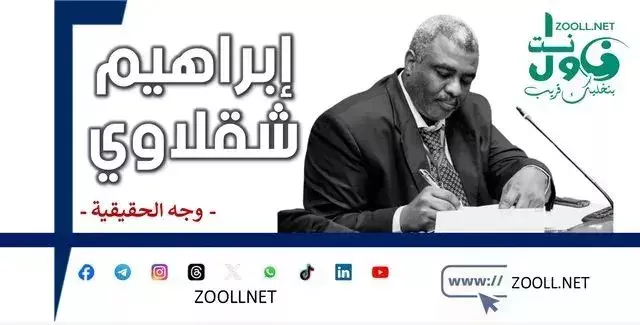Mona Abu Zaid technique and hate speech – the face of the truth – ✍️ Ibrahim Shaqlawi

I like the way in which the distinguished journalist colleague, Mona Abu Zaid, begins her articles, because her idea is based on a philosophical or heritage quote derived from the experiences and challenges of life, in order to tighten the context and to deeply deliver the idea. I therefore ask him for permission today to borrow this technique by writing my article, and the second reason is that my philosophy studies at the beginning of the first ages gave me its value to analyze the ideas and to communicate the required messages with conscience and attention.
“Hatred stems more from the weakness of the mind than from the gravity of emotion,” said German philosopher Arthur Schopenhauer. This fact is clearly obvious in societies that suffer from agitation and wars, because the speech of hatred becomes a paradise for those who have not yet realized that words can be more dangerous than bullets, and that peoples do not get up by feeding conflicts, but rather by respecting the values of tolerance and understanding.
The war itself imposed on our country because of the action of renewable international and regional ambitions which agreed with the ambitions of the elites in authority without authorization, leaving deep cracks in the social fabric, and some took advantage of media and social media platforms to disseminate hate speeches expressing zero conflict, which threatens future generations and the future and sustainable.
Consequently, the need to face this devastating discourse, which has fueled conflicts and delays peace opportunities. The speech of hatred that some adopt or unconsciously adopt is not only words in media space or social media platforms, but rather a tool that can establish divisions that extend for decades if they are not confronted with the firmness of the law and the conscience of the people in charge of the media and political discourse.
We must all resist hatred speech because regional and global experiences have proven that this type of discourse only leads to destruction and fragmentation and disintegration of societies. Rwanda, for example: which has suffered from group extermination which has killed more than 800,000 people, is the direct result of a systematic incentive of the media. However, Rwanda lives today, a rebirth of development because it has chosen the path of national reconciliation after the speech of hatred was contained by solid and awareness programs led by political elites and the national media, which have rebuilt society.
In Lebanon: the civil war broke out in 1975 and continued until 1990, and it was one of the most important wars fed by hate sectarian and political discourses. Inflammatory speeches played a major role in the division of Lebanese society between its various sects, which led to the epidemic of armed conflict between the militias, then the regional and international forces intervened which increased the complexity of the scene and the conflict of the conflict.
Sudan is not an exception, but rather needs a complete national project which is devoted to the confrontation of hate speeches, whether through conscious media, educational establishments or dissuasive laws. Political and social forces must be aware of the danger of drifting behind this shameful discourse, which can delay the resumption of the country for decades.
Consequently, the role of Rashid for the media and the media in the battle against hatred. The media is not only a transmission of news, but it is a manufacturer of consciousness. Hence the importance of the “Majd News” campaign led by enlightened young people, who felt the responsibility and the importance of national recovery, class unity and rejection of racism and regionalism. To overcome hatred speech, this conscious step is important to deal with this imminent danger. That such initiatives must develop to include all media platforms, to send a clear message that Sudan will not recover at less than that he exceeds hatred discourse and restores its original values in tolerance and peaceful coexistence.
According to what we see in the face of truth, the battle of consciousness against hatred speeches is not a luxury, nor an individual responsibility, but rather an existential necessity that everyone rises to protect our country from falling into the cycle of internal war and societal division. And when we consciously realize that words can be more deadly than bullets, it becomes our duty to use them to build the fatherland, not to demolish it. The future that we dream cannot arise from the uterus of hatred, but rather from the uterus of national reconciliation, rational attitudes and mutual respect.
You are fine and well.
Saturday April 5, 2025 AD. (Protected by e-mail)





